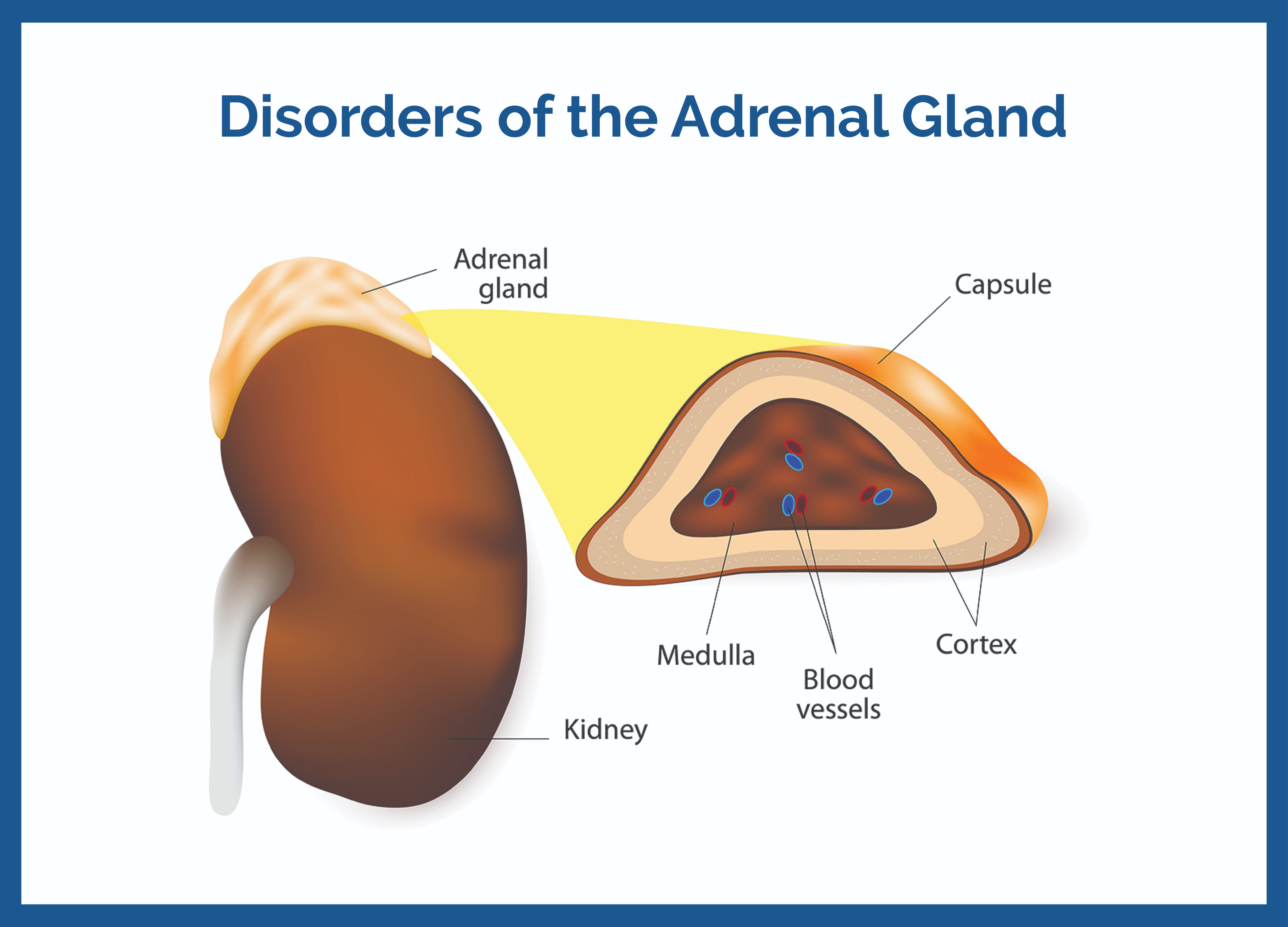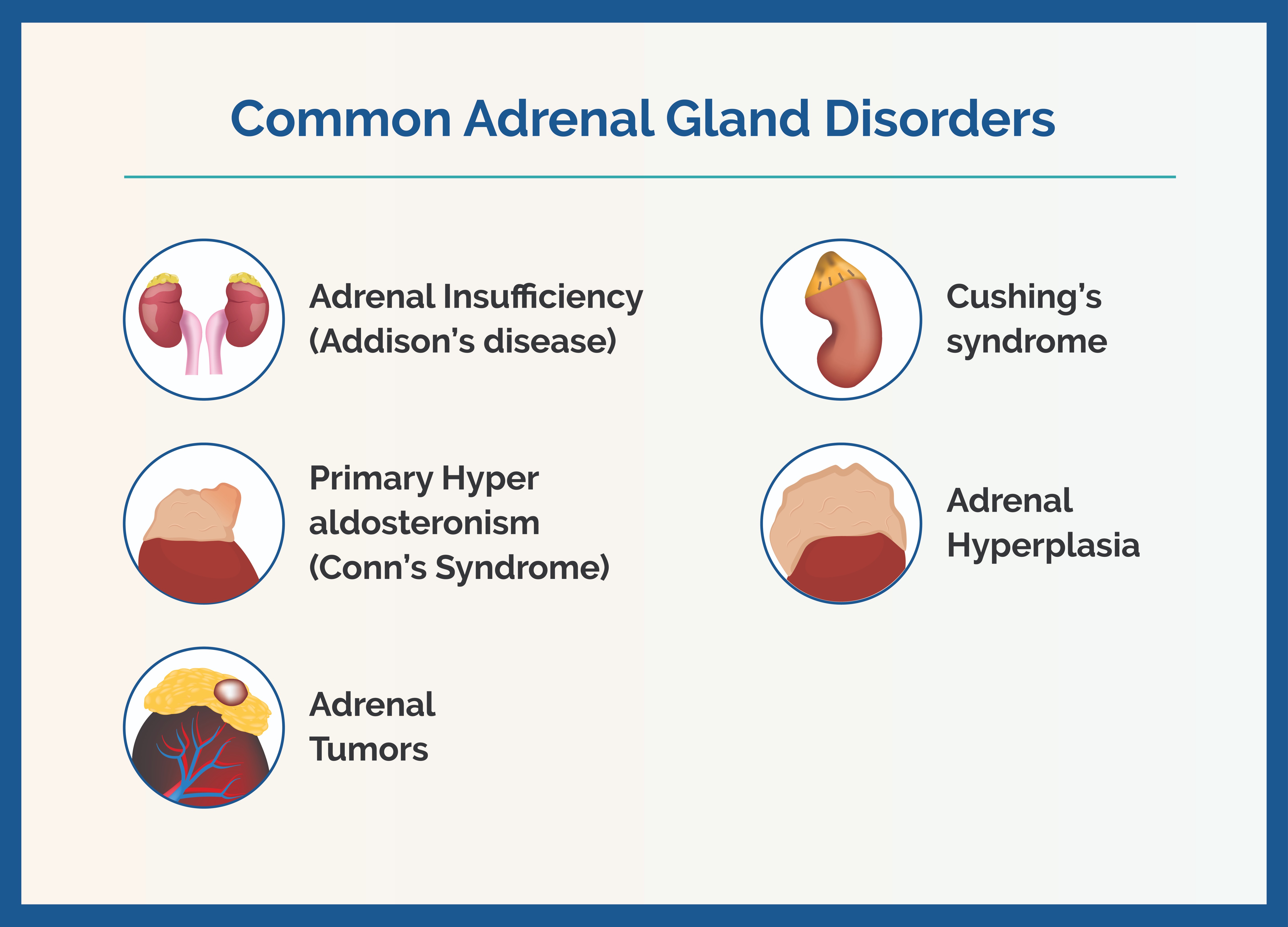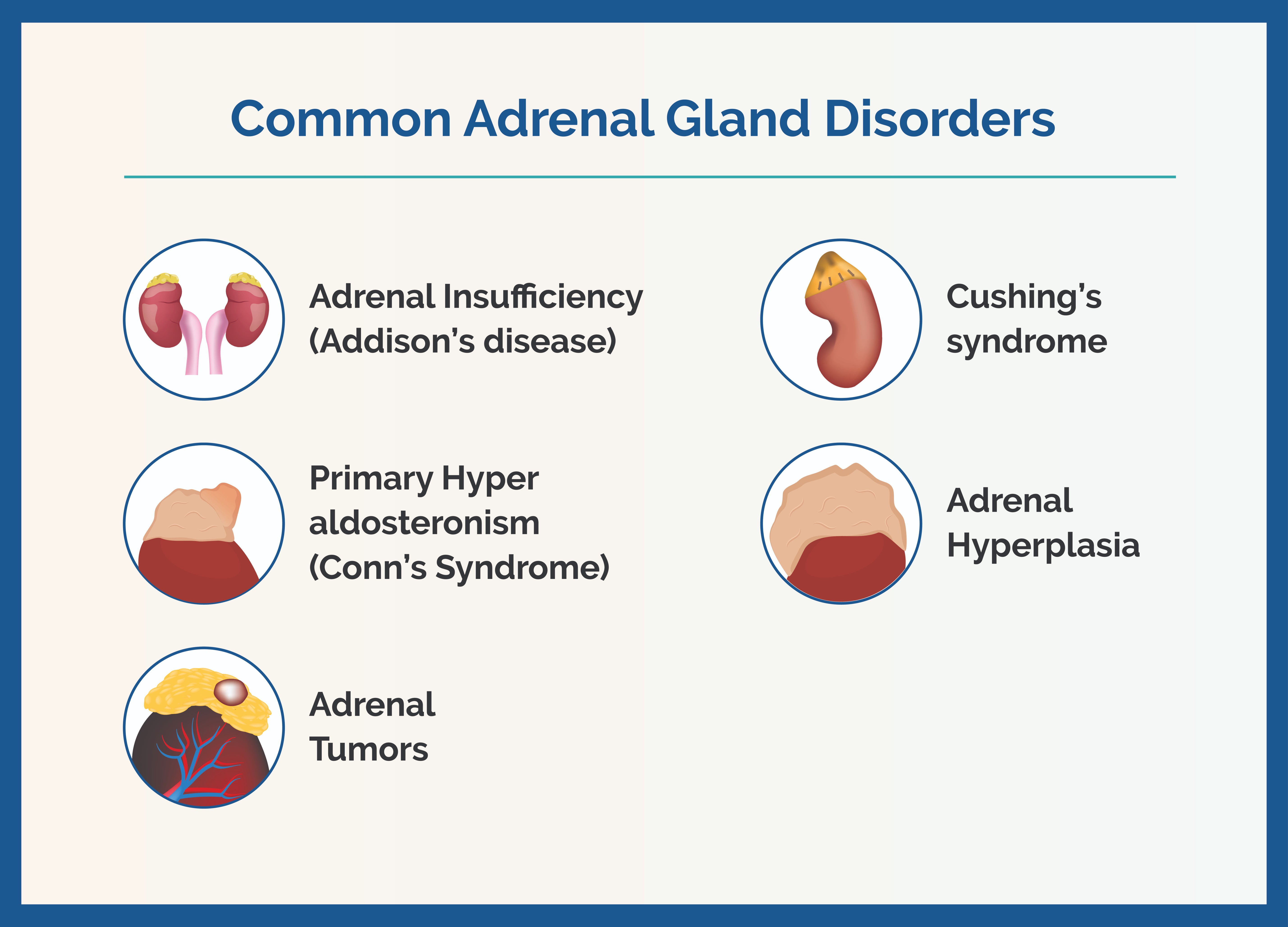Frequently Asked Questions (FAQs):
What are the adrenal glands, and what do they do?
The adrenal glands are small glands located on top of each kidney. They produce vital
hormones,
including cortical, aldosterone, and adrenaline, which regulate metabolism, immune
response, blood
pressure, and stress response.
What causes adrenal gland disorders?
Adrenal gland disorders can be caused by autoimmune diseases, genetic mutations,
infections,
tumors, or prolonged use of certain medications.
How is adrenal gland disorders diagnosed?
Diagnosis involves blood tests to measure
hormone levels, imaging studies (CT scan, MRI) to detect
tumors or abnormalities, and sometimes genetic testing.
What are the symptoms of adrenal insufficiency?
Symptoms include fatigue, muscle weakness, weight loss, low blood pressure, and darkening
of the
skin, especially in areas exposed to friction.
How is Cushing's syndrome treated?
Treatment depends on the cause but may include surgery to remove tumors, radiation therapy,
or
medications to reduce cortical production.
Can adrenal gland disorders be life-threatening?
Yes, without proper treatment, adrenal gland disorders can be life-threatening. For
example, severe
adrenal insufficiency (Addison and crisis) can cause shock and death.
Are adrenal tumors always cancerous?
No, adrenal tumors can be benign (non-cancerous) or malignant (cancerous). Many adrenal
tumors
are benign adenomas.
What lifestyle changes can help manage adrenal gland disorders?
Maintaining a balanced diet, managing stress, regular exercise, and following the
prescribed
medication regimen are essential for managing adrenal gland disorders.
How often should I see my doctor if I have an adrenal gland disorder?
Regular follow-up appointments are crucial. The frequency will depend on the specific
disorder and
treatment plan. Typically, patients should see their doctor every 3-6 months.
Can children have adrenal gland disorders?
Yes, children can have adrenal gland disorders, including congenital adrenal hyperplasia,
which is a
genetic condition affecting hormone production.


